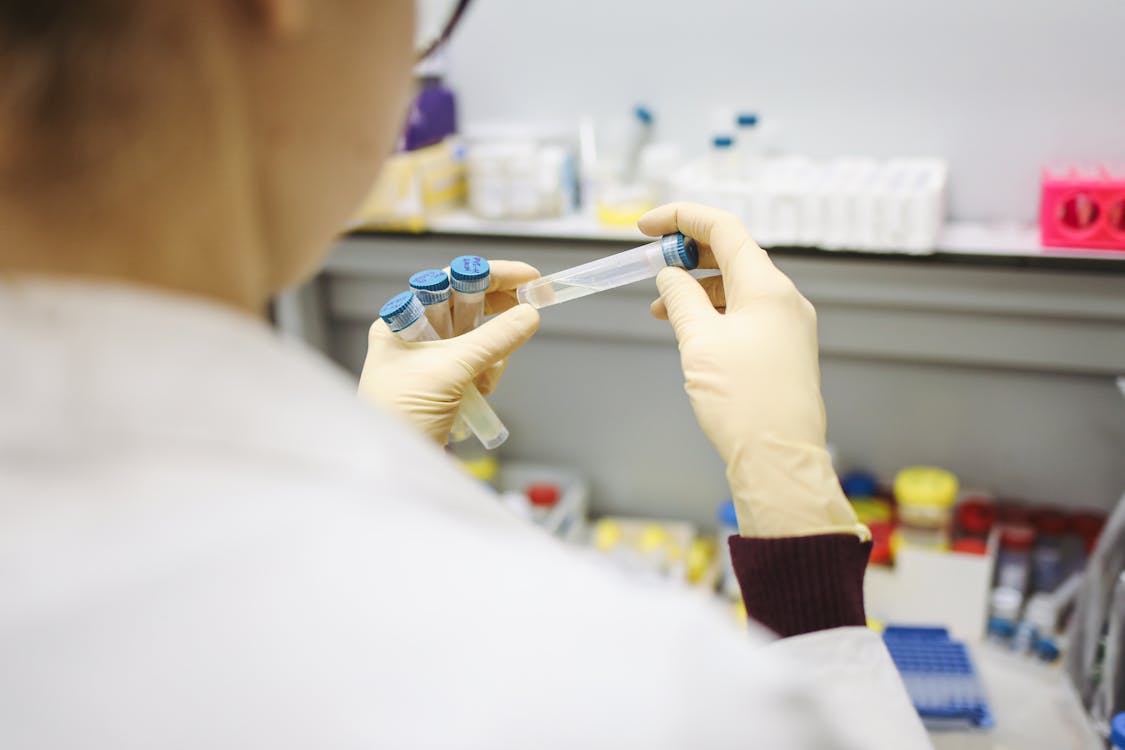A drug test is conducted in different settings to observe safety policies, such as in sporting events, legal matters, and healthcare appointments. These can be conducted as random drug tests or periodic drug testing, depending on the testing body’s guidelines.
A third-party Medical Review Officer (MRO) typically collects and assesses drug test results to confirm any illicit substances found among the tested individuals. However, a drug test may yield a positive result, even in the absence of drug use.
If you’re unsure how to explain a failed drug test, you’re not alone.
This article provides comprehensive information on reasons for failed tests, dealing with false positives, and other critical knowledge to help with your situation.
Table of Contents
- What Can Cause Positive Drug Tests?
- Illicit Drug Use
- Prescription Medications
- Over-the-Counter Medications
- Dietary Supplements and Herbal Remedies
- Performance-Enhancing Drugs
- Exposure to Second-Hand Smoke
- What Happens After Getting a Positive Test Result?
- What If Foods or Medication Caused My False Positive Drug Test?
- What to Do in Case of a Suspected Incorrect Drug Test
- Can You Retake a Drug Test?
- Employment Policies
- Legal or Court-Order Requirements
- Time Considerations
- How to Prepare for a Drug Test
- Exercise Regularly
- Change Your Diet
- Use Detox Kits
- Avoiding a Failed Drug Test With Testclear
What Can Cause Positive Drug Test Results?
A failed drug test, also known as a positive drug test, is intended to identify the presence of one or more illegal substances in a person’s system at the time of testing.
Besides the apparent presence of drugs, there are several reasons a drug test may yield a positive result.
Illicit Drug Use
The most straightforward reason for a failed drug test is the use of illegal drugs such as marijuana, cocaine, methamphetamines, ecstasy, or heroin. This can provide proof of substance abuse, which is not a favorable result to have for legal or employment matters.
The detection window for these substances can vary depending on factors such as the type of drug, frequency of use, and the individual’s metabolism.
Prescription Medications
Certain prescription medications can cause a positive result on a drug test.
For example, medication prescribed for pain management can yield a positive result for opiates. Similarly, ADHD medications, which are often amphetamine-based, can cause a positive result for amphetamines.
Here are other common substances that can cause false positives for different drugs:
- Poppy seeds: Can cause false positives for opiates (OPI).
- Dextromethorphan (found in some cough suppressants): Can cause false positives for opiates, and phencyclidine (PCP).
- Ranitidine (heartburn medication) Can cause false positives for amphetamines (AMP).
- Ibuprofen: Can cause false positives for marijuana, and barbiturates.
- Bupropion (antidepressant): Can cause false positive for methamphetamines (MET).
Over-the-Counter Medications
Some over-the-counter medications can also lead to a positive drug test.
For instance, certain cold and flu medications contain pseudoephedrine, which can cause a positive result for amphetamines.
Dietary Supplements and Herbal Remedies
Certain dietary supplements and herbal remedies can interfere with drug test results.
Some substances found in these products can be metabolized by the body into compounds similar to those of illicit drugs, leading to a positive result on a drug test. For example, poppy seeds, which contain trace amounts of opiates, have been known to cause positive results for opiates.

Performance-Enhancing Drugs
Athletes and fitness enthusiasts may test positive due to the use of performance-enhancing drugs like anabolic steroids, stimulants, or human growth hormones.
Exposure to Second-Hand Smoke
In some cases, exposure to second-hand smoke from drugs like marijuana can lead to a positive result. However, this is relatively rare and typically requires substantial exposure.
What Happens After Getting a Positive Test Result?
If you’re unsure how to explain failed drug test results to your employer, you shouldn’t be alarmed. Getting a positive drug test result is not the end of the world, but keep in mind that companies and testing bodies will respond differently to your result.
Some companies, like those in transportation, healthcare, or construction, have a strict one-strike policy, which may result in immediate termination when presented with a positive result. More lenient companies may offer lighter sanctions, such as limited benefits or rights to personal injury claims.
|
Testing Trouble: A positive test result can have more considerable implications when drug testing is requested for legal matters. Your employer can also contact authorities based on your drug test’s results, depending on their drug testing policies.
|
What If Foods or Medication Caused My False Positive Drug Test?
To avoid a false positive due to food or medication, it’s important to inform the testing administrator about any substances you’ve consumed that could potentially interfere with the test results.
If a false positive is suspected, a more specific confirmatory test, such as a gas chromatography/mass spectrometry (GC/MS) test, can be performed to determine the actual presence of illicit substances.
What to Do in Case of a Suspected Incorrect Drug Test
It’s important to note that drug tests aren’t perfect and can sometimes yield false positive results due to various factors. This can include laboratory errors, cross-reactivity with other substances, and improper handling of samples (e.g., contaminated hair, blood, or urine sample).
If you believe your drug test result is incorrect, taking immediate action to address the situation is crucial. Here are some steps you should follow:
- Understand the test: Familiarize yourself with the type of drug test you took and understand its limitations to help you make your case.
- Request a retest: Request a retest as soon as possible. Some organizations have policies for retesting in case of a disputed result.
- Consult a medical professional: Consult with a healthcare provider or Medical Review Officer (MRO) who can provide a medical explanation or documentation that could support your case.
- Seek legal advice: Consult with a lawyer if your job is at risk or if you’re facing other serious consequences.
- Document everything: Keep a record of all communications and actions related to the test.
It’s essential to act quickly if you believe your drug test result is incorrect. The sooner you start the process of gathering evidence and filing requests, the better your chances of resolving the issue.
|
PRO TIP: Standard urine drug tests usually detect recent drug use from the past 24 to 72 hours. Remembering and noting all the substances, medication, and food you consumed within this timeframe can help you with your case.
|

Can You Retake a Drug Test?
In certain circumstances, retaking a failed drug test may be possible. However, the specific policies and procedures for retaking a drug test can vary widely depending on the test’s purpose.
The method used for the retest is typically the same as the original test. However, a different type of test may be used, particularly if the initial test method is suspected to have contributed to an inaccurate result.
Here are the different factors that can affect your chances of retaking a drug test:
Employment Policies
In a workplace setting, allowing a retest often rests with the employer and the company’s standard operating procedures. It may be influenced by factors such as company policy, the employee’s role, and the circumstances surrounding the initial test failure.
Some employers may offer a second chance, mainly if the employee can provide a plausible explanation for the failed test. You can provide evidence, such as a legitimate prescription for a medication that could have caused a positive result or proof of a negative result from a reliable at-home drug test kit.
Legal or Court-Ordered Requirements
In legal or court-ordered scenarios, the opportunity for a retest after failing a drug test may be more limited. However, if there’s a legitimate reason to suspect that the initial test was flawed or inaccurate, a retest may be requested or ordered.
|
Testing Tip: Authorities may not always grant you to retake a drug test, depending on the circumstances. Before retaking a drug test, be prepared to comply with any requirements or conditions set forth by the entity administering the test.
|
Time Considerations
The timing for a retest can vary, especially if you tested positive for a drug with a short half-life.
In some cases, a retest may be conducted immediately after the initial test, mainly if there is reason to believe the test was administered or processed incorrectly. In other cases, a waiting period may be required before a retest can be conducted.
How to Prepare for a Drug Test
If you don’t want to test positive in your upcoming drug screen test, you must undergo specific lifestyle changes. Besides increasing your chances of passing a drug screen, these practices also improve your health.
Exercise Regularly
Regular exercise can help you test negative by boosting your body’s detoxifying functions.
One critical benefit of regular exercise is reduced inflammation, which allows your body’s organs to function more effectively. This reinforces your body’s natural detoxification processes and helps fight diseases.
Change Your Diet
Drug tests can spot certain ingredients and compounds in food and incorrectly flag them as illicit substances. To avoid getting false positives in routine drug testing procedures, you must ensure you’re eating a healthy diet.
Eat a healthy, well-balanced diet containing plenty of fruits, vegetables, lean protein, and whole grains. This will increase your chances of passing drug tests and boost your immune system.
Enhance your diet with detox drinks, and you’ll have a healthier and cleaner body.
Use Detox Kits
Exposure to harmful toxins can make it challenging to pass drug testing procedures. If you want to test negative in your upcoming drug test, you need to undergo a deep detox.
Testclear’s Detox kits are a comprehensive solution to help your body metabolize toxins so the liver can excrete them more effectively. Depending on the amount of toxin exposure you’ve had, we have the 10-day, 7-day, 5-day, and 1-day kits to fit your specific needs.
Avoiding a Failed Drug Test With Testclear
There are many possible reasons for failed drug tests, and there are solutions to take if you want to dispute the results. However, avoiding the problem before it happens is often the best solution.
Testclear’s wide range of products can help you secure your job, avoid legal repercussions, and maintain the quality of your personal life. From drug-passing solutions such as powdered urine kits and cleansing shampoos, you can rest assured that you won’t have to think of reasons for failing a drug test.